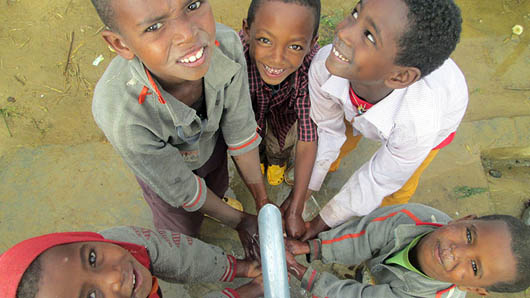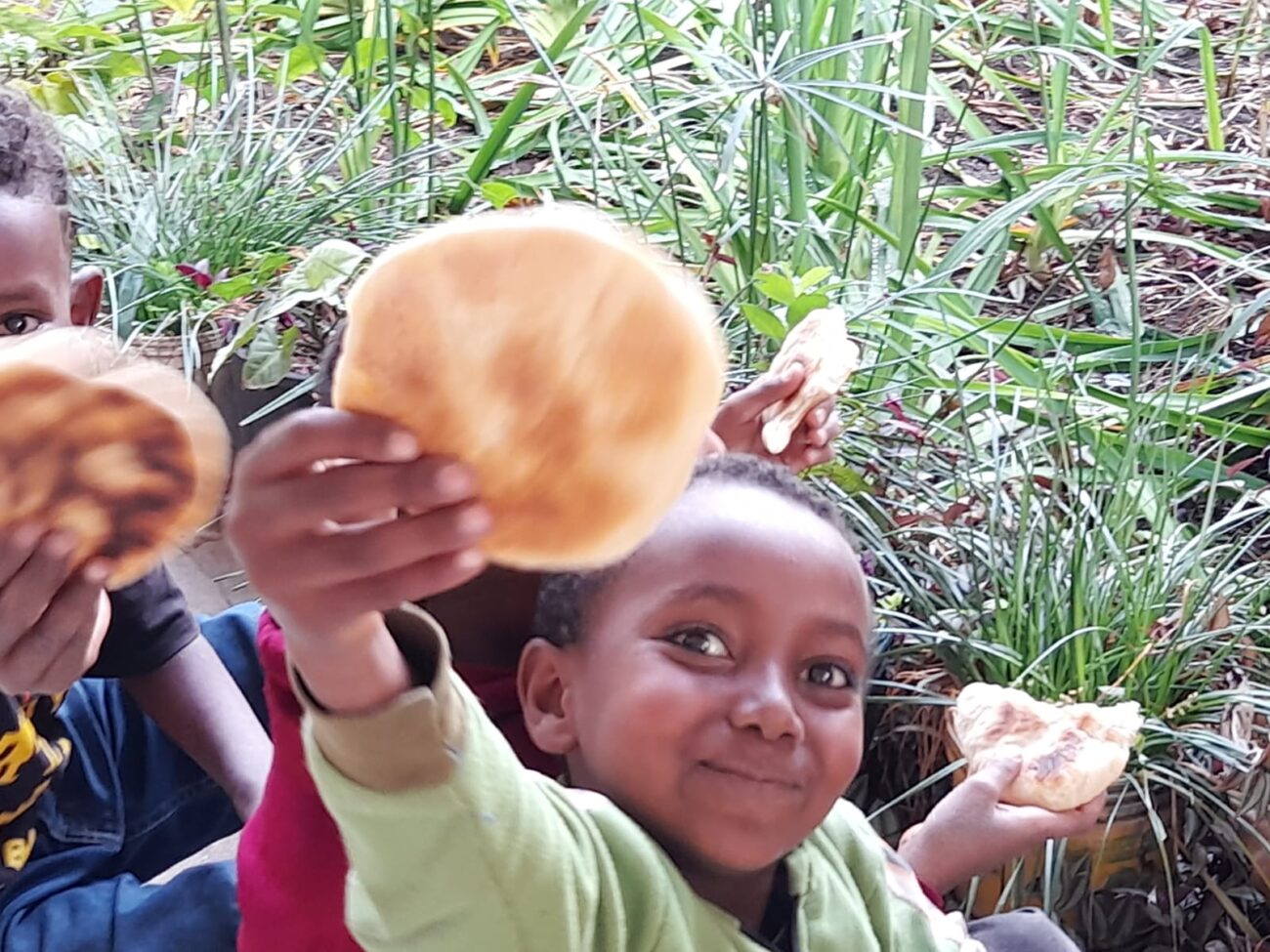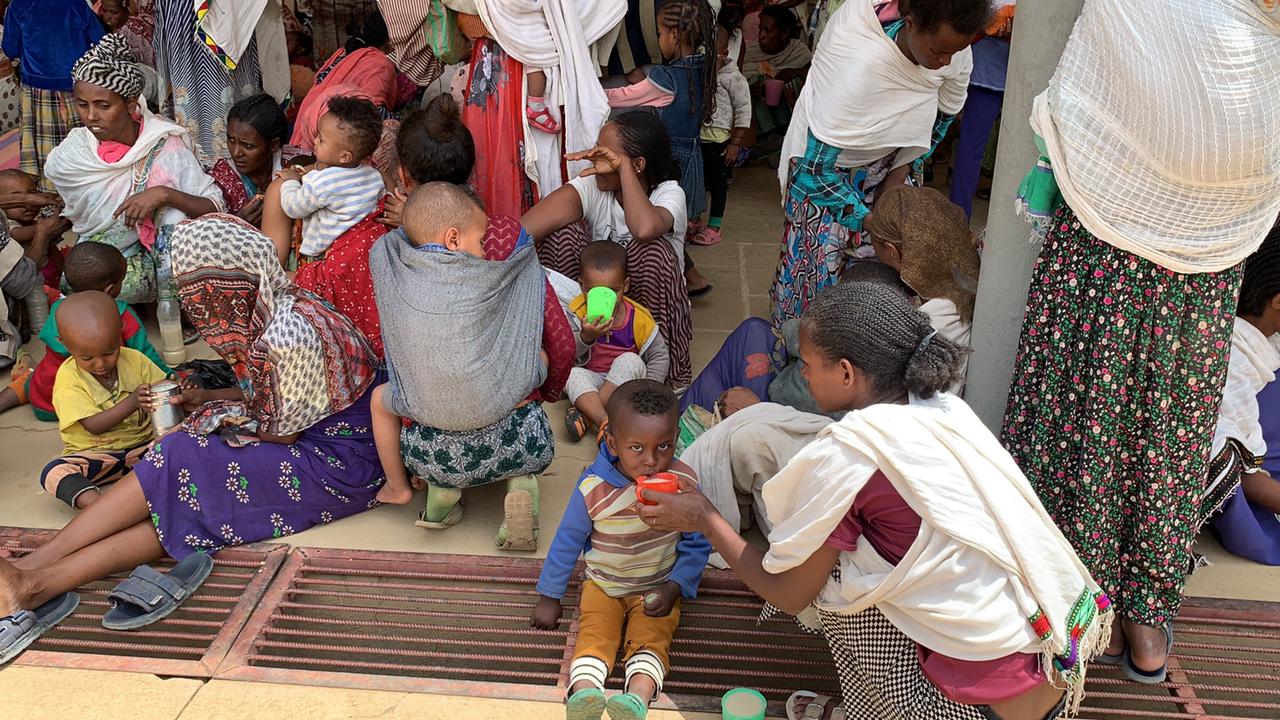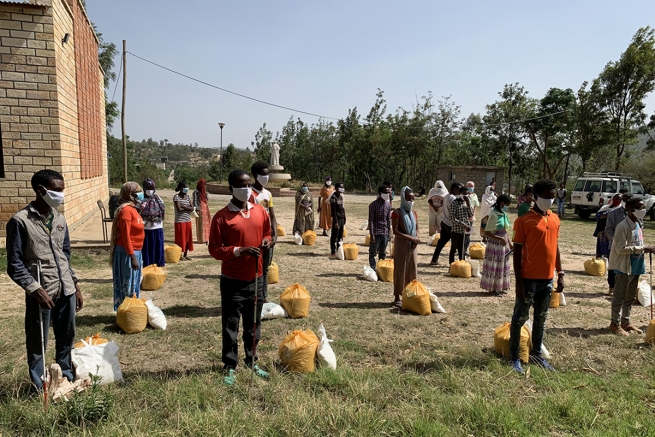ETHIOPIA: Water Well Projects Provide Safe Drinking Water and Improved Sanitation during Recent Droughts

(MissionNewswire) Since June 2011, Ethiopia has been plagued by a persistent drought that has damaged agricultural production and contributed to an increase in malnutrition, especially among the most vulnerable members of the population. The United Nations has estimated that 14 million people are at risk and more than 10 million are in need of emergency food aid. In an effort to bring relief to Ethiopians, Salesian missionaries across the country have been working to construct wells and improve sanitation.
“From safe drinking water and healthy sanitation to agriculture, water is essential for life,” says Father Mark Hyde, executive director of Salesian Missions, the U.S. development arm of the Salesians of Don Bosco. “Salesian Missions has made building wells and other projects that supply fresh, clean water a top priority for every community in every country in which Salesian missionaries work.”
The construction of a simple well improves the health of residents, increases agricultural production and leads to a better quality of life for families, especially for girls and women. Women and children often bear the primary responsibility for water collection in the majority of households and globally, spend 140 million hours a day collecting water. Children in communities without access to local wells are forced to walk for hours to collect drinking water—water that often proves contaminated and seriously sickens those who consume it. Many others are unable to attend school regularly because they must spend time searching for distant wells.
Salesian well projects in Ethiopia utilize construction techniques compatible with cultural traditions, practices and customs of the region and use locally sourced materials. The new wells will improve sanitation and provide safe drinking water and water for agriculture and food production.
Residents of the Tigray region in northern Ethiopia are experiencing chronic food insecurity made worse by recurring periods of drought, low soil fertility and an unsustainable use of natural resources. Agriculture is the primary source of sustenance and survival for communities in this region and the onset of drought has negatively impacted all aspects of family life. In order to address this situation and provide access to clean, safe water, Don Bosco Missions in Turin, Italy is planning to implement a well project. Each well equipped with pump is expected to cost just over $11,000 U.S.
A collaborative project between Salesian missionaries and International Voluntary Service for Development (VIS) volunteers began in 2011 and has successfully completed five wells in the Gambella area of Ethiopia. The wells are operated by a hand pump and are between 50 and 60 meters deep, guaranteeing water to local villages that will benefit close to 1,200 people. To ensure that the wells last as long as possible, a village committee has been set up to oversee their management and maintenance.
Salesian missionaries have a long history of providing educational and support services to poor youth in Ethiopia. Missionaries operate six primary schools, three secondary schools and six vocational training centers in the country. At all these Salesian-run educational facilities, youth are able to gain an education while accessing support services including family sponsorship and school feeding programs. These supports reinforce the missionaries’ goal of keeping youth in school as long as possible. Missionaries at these programs continue to assess water and sanitation issues for the programs and surrounding villages. New water well projects are planned and implemented as needs arise.
Ethiopia is one of the poorest countries in the world with more than 38 percent of its population living in poverty, according to Feed the Future, the U.S. Government’s global hunger and food security initiative. Close to 85 percent of the country’s workforce is employed in agriculture but frequent droughts severely affect the agricultural economy leaving more than 12 million people chronically, or at least periodically, food insecure. In addition, more than two-thirds of the population is illiterate.
The country has 4 million orphans which account for nearly 12 percent of all children and according to UNICEF, more than half a million of these were orphaned as a result of the HIV/AIDS crisis that has affected the country. Thousands more children run away each year seeking a better life on the streets.
###
Sources:
ANS – Spain – Wells in Ethiopia to improve the lives of people in the poorest regions
UNICEF – Ethiopia




